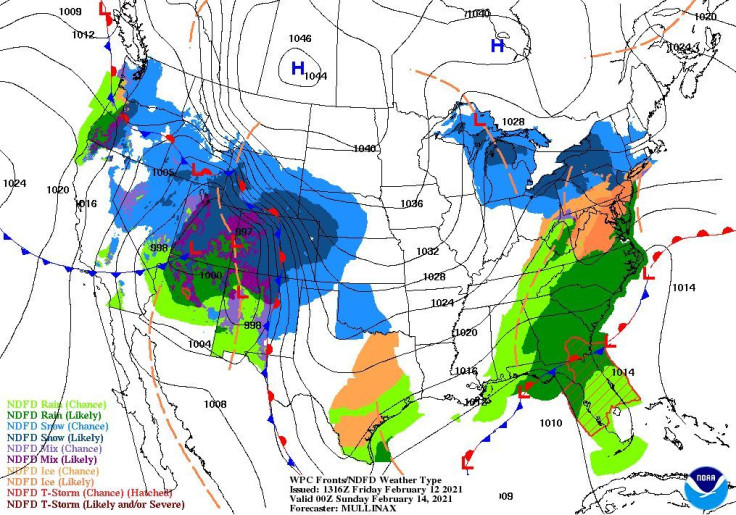Winter Storms Like Texas The New Normal, Experts Say
Texas and other parts of the Great Plains and Mid-South are just emerging from a deadly winter storm that sent temperatures to record-low levels and crippled power grids. But experts say Americans, even those in the so-called Sun Belt, need to prepare because storms such as these are on the rise.
At least 24 people have died this week, some from fires or carbon monoxide poisoning while trying to stay warm in their homes, according to the Associated Press. Oklahoma City experienced an Arctic blast that dropped temperatures to as low as minus-14.
"This is a different type of storm," said Kendra Clements, who opened her Oklahoma City business building to shelter homeless people. Some of the sheltered had already sustained frostbite, hypothermia and came with icicles in their hair.
Experts say it is merely a harbinger of what is to come as climate and natural disasters get worse.
Power supplies of all sorts failed in the face of the extreme cold. Natural gas-fired power plants went offline and, to a lesser degree, wind turbines froze and stopped turning. More than 100 million live where there are active winter weather warnings, watches and advisories. Blackouts are expected to continue in some parts of the U.S. for days.
As climate change gets worse, severe and record-breaking conditions become more common. Texas built its power system to withstand air conditioning demand in the summer, not polar-level cold in the winter.
"This definitely was an anomaly," said Sara Eftekharnejad, an assistant professor of electrical engineering and computer science at Syracuse University. But she said it's likely to occur more often because of climate change.
"There probably needs to be better planning, because we're starting to see more extreme weather events across the country," she said, specifically mentioning the severe cold in Texas and intense heat last year in California that set the stage for deadly wildfires.
People can take steps to prepare, as well. Ready.gov recommends preparing for winter weather by properly insulating your home, caulking and weather-stripping around windows and doors, and taking measures to keep pipes from freezing. Have smoke alarms and carbon monoxide detectors with battery backups available.
Additionally, people should have supplies for several days if the power goes out, keep medication supplies current, and have extra batteries available for radios and flashlights. For your car, have an emergency supply kit that includes jumper cables, sand, a flashlight, warm clothes, blankets, bottled water and non-perishable foods. The site also advises keeping a full tank of gas when possible.

© Copyright IBTimes 2024. All rights reserved.





















